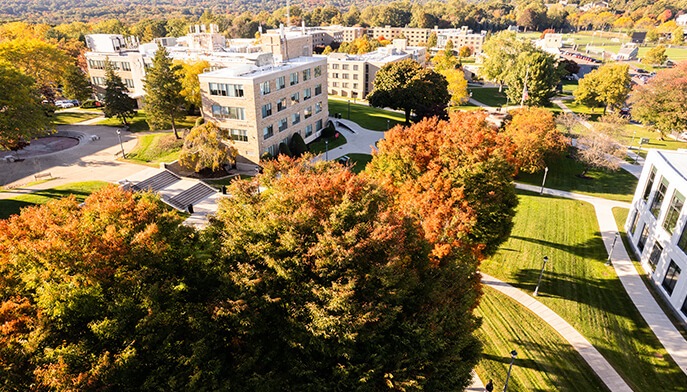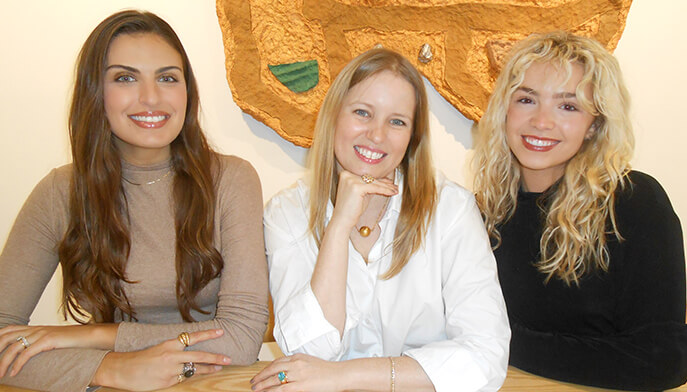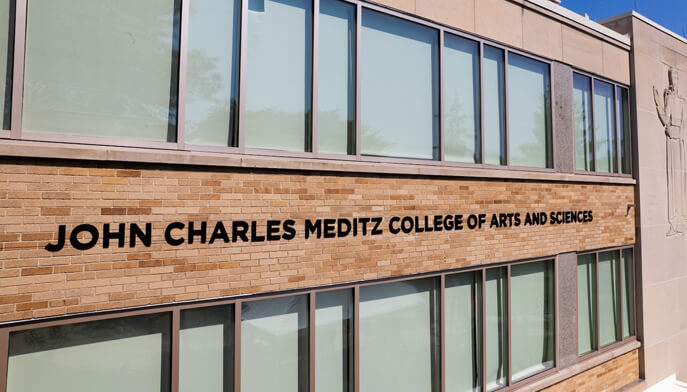John Charles Meditz College of Arts and Sciences biology major Samantha Diiorio ’26 is contributing to groundbreaking cancer research through a project exploring how natural plant-derived compounds may help combat breast cancer.
Under the mentorship of Shelley Phelan, PhD, professor of biology and director of the Science Institute, Diiorio is studying how punicic acid, found in pomegranate seed oil and oleuropein, a polyphenol from olive leaves, affect the survival of MCF-7 breast cancer cells. Her work was recently featured at Fairfield’s 2025 Innovative Research Symposium, where she presented her findings to faculty, peers, and industry professionals.
Diiorio’s interest in the project began after she learned about current faculty research in her introductory biology course. The prevalence of breast cancer — and the meaningful potential of plant-based therapies — drew her to Dr. Phelan’s lab. “I’m fascinated by how something naturally occurring can target complex cancer pathways so effectively, offering safer and possibly more sustainable treatment options,” said Diiorio.
Her research examines the cytotoxic effects of punicic acid and oleuropein on estrogen-receptor-positive MCF-7 cells, one of the most widely used models for studying hormone-responsive breast cancer. By treating the cells with varying concentrations of each compound, Diiorio measures cell death using LDH release assays, analyzes cellular morphology for signs of apoptosis, and evaluates oxidative stress using a suite of assays that detect reactive oxygen species and lipid peroxidation.
A key component of the study focuses on Peroxiredoxin (Prdx) antioxidants, proteins that normally protect cells from oxidative stress. Diiorio discovered that suppressing certain Prdx genes made cancer cells more sensitive to punicic acid, suggesting that these antioxidants may help cancer cells survive treatment. “Both compounds are of interest in cancer research because they are naturally derived, relatively non-toxic, and appear to target multiple mechanisms involved in cancer development," she noted. “This makes them promising candidates for developing safer, plant-based approaches to cancer prevention and treatment.”
Like many student researchers, Diiorio has faced challenges, from high-cost reagents to the lengthy, meticulous process of generating reproducible data, but the rewards have been equally substantial. She described the excitement of watching her results take shape and the honor of presenting at the 2026 American Association for Cancer Research Annual Meeting. “Being selected to share these findings with other researchers in the field is not only a personal achievement but also validation of the project’s significance,” she said, crediting Dr. Phelan for her support and mentorship.
As she looks ahead, Diiorio hopes her project will contribute to future studies on natural compounds and cancer treatment. “Research like this can play an important role in developing new cancer treatments by identifying natural compounds that are both effective and less toxic than many current chemotherapies,” she explained. “Looking holistically, this type of research bridges natural product chemistry and molecular oncology, helping move us toward more precise cancer therapies that are safer, more sustainable, and potentially more accessible worldwide.”




